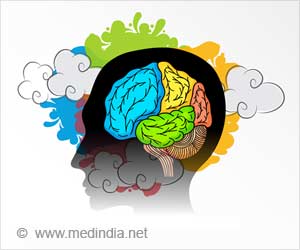The mentally ill are the most vulnerable members of our society and are most prone to abuse, neglect and despair. Due to the very nature of illness, which in severe cases takes away the insight, these citizens form a voiceless population.
The Minister of Health and Family Welfare in his opening remarks in the Consultative Committee meeting of the Ministry, held in Delhi last week, said that he would like to share the experience of his ministry regarding the progress made in the National Mental Health Programme (NMHP) in the country. He wished to share the difficulties faced in reaching the unreached population i.e. the mentally ill who have been away from benefits of modern treatment due to stigma, ignorance and paucity of services.Underlining the importance of the programme he said that at any given time about 10% of the population suffers from various mental and behavioral disorders. Out of these, approximately 10% suffer from severe mental disorders. And 10% of those suffering from severe mental disorders require long-term treatment. Out of those requiring long-term treatment, approximately 10% require hospitalization.
From the above estimate about 100 million population suffer from some mental ailment at any given time. The burden of neuropsychiatry disorders is estimated to be a whopping 12% of the total disease burden and imposes a heavy burden on the family and society in terms of morbidity, loss of productivity and mortality in terms of suicide in extreme cases.
A large number of people with mental problems do not seek help due to ignorance, stigma and lack of availability of services. However, most of these ailments could be treated at an outpatient basis and only a very small proportion requires hospitalization. This has led to acceptance of community-based treatment of mental disorders worldwide. Besides being less expensive community based interventions are more accessible, acceptable, less stigmatizing and less prone to human rights abuse leading to early integration back in the community.
The minister replying to the concern expressed by the members of the committee accepted that the county faces an acute shortage of mental health professionals. He said that with a large population in our country on one hand and very few psychiatrists being available on the other hand, less than one psychiatrist is available for every 300,000 population. The psychiatrist / population ratio in rural areas that account for 70% of country's population, could well be under one for every million. To address this huge burden, NMHP was started in 1982 to provide comprehensive community mental health services fully integrated with general health care services and to change from custodial to therapeutic community care. This model was adapted as the district mental health programme (DMHP) and it was implemented.
The Minister informed the members that till now funds have been given to 129 districts for implementing District Mental Health Programme across 30 States/UTs, 23 Mental Hospital for modernization and 70 Psychiatry wings in Medical colleges/general hospitals. He further said that there is still a long road ahead and the Government is envisaging modifications in the NMHP to make it more comprehensive by incorporating mental health promotive activities like school & college mental health services, stress management at work place and suicide prevention activities in the district mental health programme. This would require an increase in the total five-year budget of a DMHP in a district to about Rs. 2 crores each from the existing Rs. 1.2 crore. It is envisaged to cover the remaining districts of the country under DMHP. For proper and effective utilization of funds, a robust monitoring mechanism under NMHP is also being planned. Acute shortage of manpower in the field of mental health could be met by having more training institutes on the lines of NIMHANS. This would require a large investment for creating this infrastructure that would bring fruits in medium and long-term period. As an immediate measure Government is also envisaging having short-term training courses in mental health.
Advertisement
Source-PIB
SS/N





